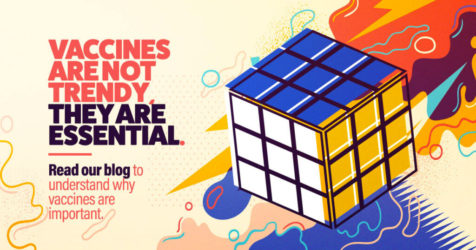Discover Healthy Habits to Manage the Scope of Mental Health in Everyday Life

Since COVID-19, mental health has been at the forefront of global conversations. A new emphasis has been placed on diagnosing mental health disorders and managing them throughout daily life.
Terms like depression, anxiety, obsessive-compulsive disorder (OCD), major depressive disorder (MDD), and self-care have taken center stage without much explanation. Here’s how you can define mental health and other related terms easily.
What Is Mental Health?
According to the Centers for Disease Control, mental health is your emotional, psychological, and social well-being. In other words, how you respond to situations, how you navigate your mood, and how you maintain relationships are all affected by your mental health.
A common misconception about mental health is its relation to adverse life experiences. You can have a seemingly “normal” life and still be affected by mental health.
Moreover, there is no need to associate any stigma with mental health. In its most basic sense, mental health is how you respond. Therefore, it affects everyone, whether they know it or not.
Common Mental Health Disorders
Depression
The National Institute of Mental Health labels depression as a mental health mood disorder. Depression can affect your overall mood regardless of the environment or change in habit or scenario. More serious diagnoses of depression can affect eating, sleeping, working, and intrusive thoughts. Depression can affect any gender or ethnicity.
Studies show that women are diagnosed more regularly for depression, as men often remain undiagnosed. There are many forms of depression. The most notable forms include bipolar disorder and major depressive disorder (MDD). You can learn more about depression, its management, and more through a Wake Research Depression Study.
Bipolar Disorder
Similar to major depressive disorder, bipolar disorder creates increased and intense feelings of sadness and decreased activity and mood. The intrusive thought patterns commence in episodes that can last enumerable amounts of time.
However, the difference lies in how long an attack can last and how the depression presents itself. Bipolar disorder can present as depression or as mania. The National Library of Medicine describes mania as at least four or more bipolar episodes in a specified period, usually 12 months.
Anxiety
Anxiety is a feeling of an increased and constant state of worrying or fear. Worry or fear associated with anxiety does not subside easily and can affect you by halting daily functions. Other symptoms can include fatigue or restlessness, difficulty concentrating, and irritability.
Self-Care Methods to Manage Mental Health
Mental health has a large range. There are many more diseases and disorders attributed to mental health. In any and all cases of mental health, the best start for combatting it is self-care.
Self-care is learning to add balance to your daily routine and taking time to manage your mental health properly. Recently, the most notable forms of self-care include prioritizing work-life balance, practicing mindfulness, carving out alone time, or dedicating time to pampering oneself.
Based on conversations between you and your doctor, self-care can include new clinical trials and studies. You can learn more about self-care options and other mental health studies at Wake Research and speak with your doctor about what is best for you.
Struggling with mental health? Call or text 988.


